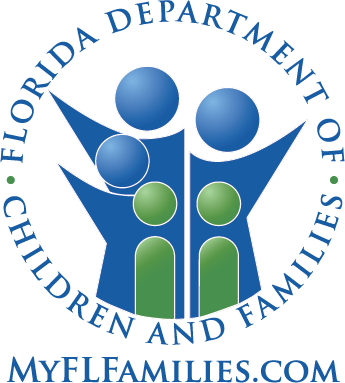What is depression?
Depression is more than just feeling sad or going through a rough patch. It’s a serious mental health condition that requires understanding and medical care. Depression can be debilitating for those who experience it. But many people with depression often suffer in silence, afraid of the stigma attached to mental health disorders.
Causes of Depression
Depression doesn’t have a single cause. It can be triggered by a life crisis, physical illness, or something else. But it can also occur spontaneously. Scientists believe several factors can contribute to depression:
Biological factors
Biological factors play a significant role in the development of depression. Research suggests that individuals with depression may have imbalances in certain chemicals in the brain, such as serotonin, dopamine, and norepinephrine, which are responsible for regulating mood. Additionally, genetic factors can contribute to an increased vulnerability to depression. Having a family history of depression or other mental health disorders can increase the likelihood of developing depression.
Psychological factors
Psychological factors also contribute to the development of depression. Individuals who have experienced trauma, abuse, neglect, or significant life stressors may be more susceptible to developing depression. Individuals with low self-esteem, a negative thinking pattern, or a tendency to ruminate on negative thoughts are more likely to experience depression. Personality traits, such as being highly self-critical or having a pessimistic outlook on life, can also increase the risk of developing depression.
social factors
Social factors, such as interpersonal relationships and social support, have a significant impact on mental health. Experiencing conflicts or strained relationships with family members, friends, or romantic partners can contribute to feelings of loneliness, isolation, and depression. Social isolation, lack of social support, or feelings of being disconnected from others can also increase the risk of depression.
Environmental factors
Certain life events, such as the loss of a loved one, a major illness, job loss, financial difficulties, or significant changes in life circumstances, can trigger or exacerbate depression. Living in a stressful or chaotic environment, experiencing chronic stress, or being exposed to violence can also increase the risk of developing depression.
medical conditions
Chronic illnesses, such as cancer, heart disease, diabetes, or neurological disorders, can contribute to the development of depression due to the physical and emotional strain they place on individuals. Certain medications, hormonal imbalances, or changes in brain structure and function can also be contributing factors.
Discover more about your feelings
Take our quick quiz now and gain insights into your emotions.
It’s the first step towards understanding yourself better.
What are the Symptoms of Depression?
Symptoms of depression can vary from person to person, and their severity and duration can also differ. It’s important to note that experiencing a few of these symptoms doesn’t necessarily indicate depression, but if these symptoms persist and significantly impact daily functioning, it’s advisable to seek professional help.
Persistent Sadness and Low Mood
Loss of Energy and Fatigue
Depression often leads to a noticeable decrease in energy levels, leaving individuals feeling fatigued and lacking motivation. Even simple tasks can feel overwhelming and exhausting, contributing to a sense of heaviness and sluggishness.
Changes in Appetite and Weight
Sleep Disturbances
Difficulty Concentrating
Feelings of Guilt or Worthlessness
Loss of Interest in Pleasurable Activities
Physical Symptoms
Recurrent Thoughts of Death

Depression Treatment
Depression can cast a shadow over every facet of your life, making even the simplest tasks seem insurmountable. But remember, you’re not alone in this battle. At Still Mind Mental Health, we’re committed to guiding you through the fog of depression towards a brighter, more hopeful tomorrow.
how to treat depression?
The treatment of depression typically involves a combination of approaches that may vary depending on the individual and the severity of their symptoms. It’s important to note that professional guidance from mental health experts is crucial in developing an appropriate treatment plan.
This is a fundamental treatment approach in mental health centers. It involves regular discussions with a mental health professional to understand and manage depression. There are several types of psychotherapy that can be effective, including cognitive-behavioral therapy (CBT), interpersonal therapy (IPT), and dialectical behavior therapy (DBT).
medical management
Antidepressant medications are often used to treat depression. These medications work by affecting the chemicals in the brain that regulate mood. The process of finding the right medication and dosage can be a trial-and-error process, and mental health centers often have professionals who specialize in managing this process.
group therapy
Many mental health centers offer group therapy sessions. These sessions allow individuals to share their experiences and learn from others who are dealing with similar issues.
family therapy
In some cases, involving family members in the treatment process can be beneficial. Family therapy sessions can help family members understand what their loved one is going through and learn how they can provide support.
Lifestyle Counseling
Mental health centers often provide counseling to help individuals make lifestyle changes that can support their recovery. This can include advice on nutrition, physical activity, sleep habits, and stress management.
Mindfulness and Relaxation
Techniques such as mindfulness, meditation, yoga, and progressive muscle relaxation can be useful adjuncts to other treatments for depression. They can help individuals manage stress, improve concentration, and increase feelings of well-being.
For severe cases of depression, residential treatment programs provide intensive, round-the-clock care in a non-hospital setting.
Prevention and Coping Mechanisms
While depression is not always preventable, there are many things you can do to reduce its severity and duration.
Take care of your body
Regular exercise, a healthy diet, and adequate sleep can help maintain your mental health.
Stay connected
Spending time with friends and family, especially in times of crisis, can help you feel better.
Get help when you need it
Seeking professional help is not a sign of weakness, and it’s important not to wait until things get worse.
Still Mind Depression Treatment in florida
Healing from Within: Still Mind, Your Path to Mental Wellness
Am i Depressed?
Depression is more than just feeling sad or having a bad day. It’s a serious mental health condition that affects your thinking, emotions, and physical well-being. If you’ve been experiencing some of the following signs and symptoms most of the day, nearly every day, for at least two weeks, you may be suffering from depression:
- Persistent sad, anxious, or “empty” mood
- Feelings of hopelessness or pessimism
- Irritability
- Feelings of guilt, worthlessness, or helplessness
- Loss of interest or pleasure in hobbies and activities
- Decreased energy or fatigue
- Difficulty concentrating, remembering, or making decisions
- Insomnia or sleeping too much
- Appetite or weight changes
- Thoughts of death or suicide, or suicide attempts
- Aches or pains, headaches, cramps, or digestive problems without a clear physical cause and/or that do not ease even with treatment
What is Postpartum Depression?
- Depressed mood or severe mood swings
- Excessive crying
- Difficulty bonding with your baby
- Withdrawing from family and friends
- Loss of appetite or eating much more than usual
- Inability to sleep (insomnia) or sleeping too much
- Overwhelming fatigue or loss of energy
- Reduced interest and pleasure in activities you used to enjoy
- Intense irritability and anger
- Fear that you’re not a good mother
- Feelings of worthlessness, shame, guilt, or inadequacy
- Diminished ability to think clearly, concentrate, or make decisions
- Severe anxiety and panic attacks
- Thoughts of harming yourself or your baby
- Recurrent thoughts of death or suicide

